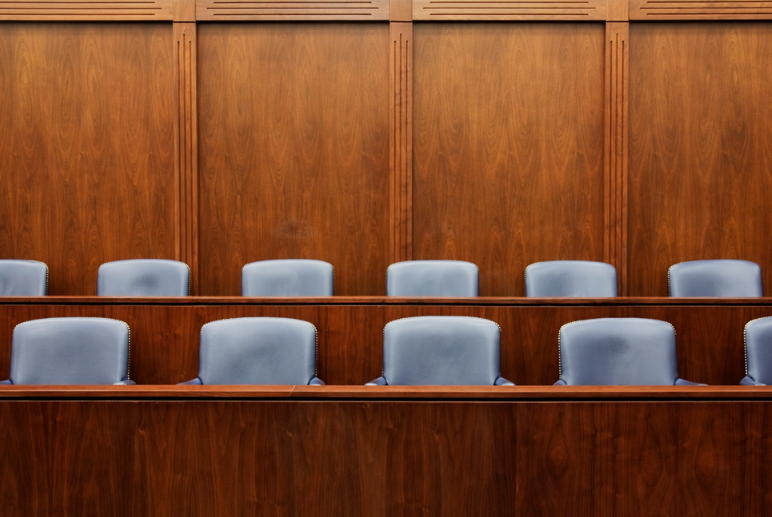 Gregory Lioce was involved in a multi-vehicle traffic crash. Identifying the at-fault driver was difficult. Gregory Lioce argued that Dana Cohen changed lanes into him. Dana Cohen said Mr. Lioce turned left into her. Mr. Lioce was then rear-ended by John Wilson, who argued that he was not negligent because he had been cut off.
Gregory Lioce was involved in a multi-vehicle traffic crash. Identifying the at-fault driver was difficult. Gregory Lioce argued that Dana Cohen changed lanes into him. Dana Cohen said Mr. Lioce turned left into her. Mr. Lioce was then rear-ended by John Wilson, who argued that he was not negligent because he had been cut off.
In closing at trial, counsel for Wilson argued in favor of the jury sending a message. Counsel said:
the only way that people and their lawyers will stop bringing cases like this is if juries start saying: No. Enough is enough.
It has always been said that the American jury system is the conscience of our society; that when a jury speaks through its verdict, it’s a reflection of society’s values and beliefs and what justice is or should be.
This jury, you, have a tremendous responsibility here. Like I said, it’s not a high profile case, but your responsibility here is no less. You have the opportunity here with your verdict to say enough is enough.
Lioce v. Cohen, 124 Nev. 1, 9-10, 174 P.3d 970, 975-976 , 2008 Nev. LEXIS 1, *10-11 (Nev. 2008).
The Nevada Supreme Court defined jury nullification as follows:
[a] jury’s knowing and deliberate rejection of the evidence or refusal to apply the law either because the jury wants to send a message about some social issue that is [**983] larger than the case itself or because the result dictated by law is contrary to the jury’s sense of justice, morality, or fairness.
Id., 124 Nev. at 20, 174 P.3d at 982-983, 2008 Nev. LEXIS 1 at *34
The Court said that counsel’s arguments failed to focus on the facts and law of the case and suggested that “if the jury found in the defendants’ favors, the jury could remedy the social ills of frivolous lawsuits.” The Court overturned the verdict in favor of the Defendants stating that counsel:
asked the jury to “send a message” about frivolous lawsuits. His arguments were directed at causing the jurors to harbor disdain for the civil jury process–a defining, foundational characteristic of our legal system–and at perpetuating a misconception that most personal injury cases are unfounded and brought in bad faith by unscrupulous lawyers. These arguments were irrelevant to the cases at hand and improper in a court of law and constitute a clear attempt at jury nullification.
Id., 124 Nev. at 21, 174 P.3d at 983, 2008 Nev. LEXIS 1 at *35.
Arguments favoring jury nullification can amount to misconduct. However, just because counsel is asking for the jury to send a message does not automatically amount to a request for jury nullification. In the case of Capanna v. Orth, 134 Nev. 888, 890-891, 432 P.3d 726, 731, 2018 Nev. LEXIS 119, *5, 134 Nev. Adv. Rep. 108, 2018 WL 6804354, the Nevada Supreme Court explained:
To the extent there were statements asking the jury to send a message, we have held that “such arguments are not prohibited so long as the attorney is not asking the jury to ignore the evidence.” Pizarro-Ortega v. Cervantes-Lopez, 133 Nev. 261, 269, 396 P.3d 783, 790 (2017). Here, it is clear that counsel did not implore the jury to disregard the evidence. See Lioce, 124 Nev. at 20, 174 P.3d at 982 (“Whether an attorney’s comments are misconduct is a question of law, which we review de novo . . . .”). As we concluded in Pizarro-Ortega, counsel asked the jury to arrive at its decision “based on the evidence.” 133 Nev. at 269, 396 P.3d at 790. Therefore, counsel did not improperly advocate for jury nullification.
Thus, when counsel makes such an argument on sending a message, the attorney must always temper that argument by reminding the jury to base its decisions on the evidence.
If you have questions about Nevada Insurance, Coverage or Trucking Law, please contact Mike Mills at 702.240.6060×114 or email him at mmills@blwmlawfirm.com.
 Follow
Follow Email
Email


